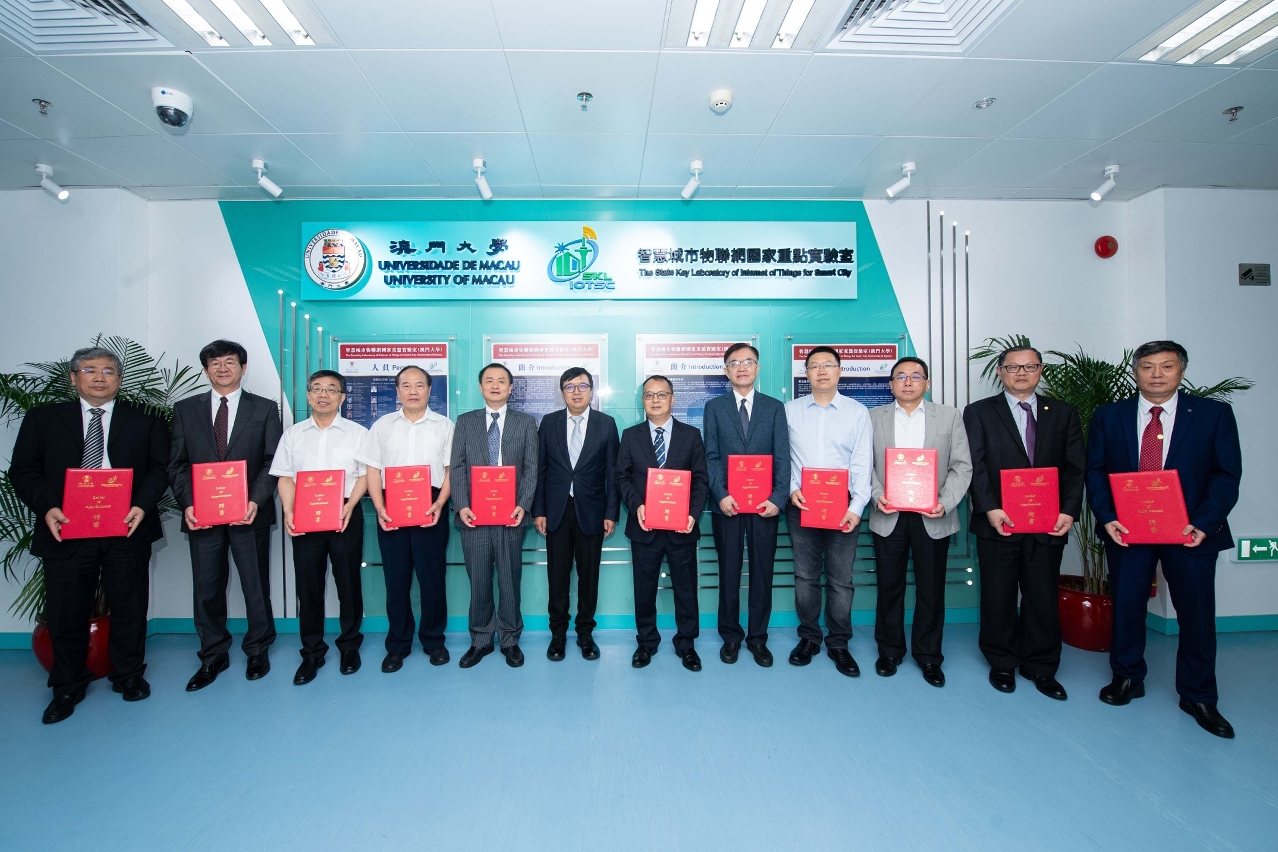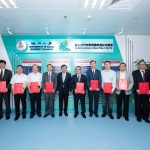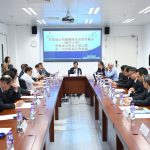 The first meeting of the SLK-IOTSC’s Academic Committee
The first meeting of the SLK-IOTSC’s Academic Committee
The State Key Laboratory of the Internet of Things for Smart City (University of Macau) (SKL-IOTSC) held an inauguration ceremony for its first Academic Committee, which was followed by the committee’s first meeting in 2019. The first Academic Committee is comprised of 13 academicians, experts and scholars in different fields.
Yonghua Song, rector of UM, fellow of the Royal Academy of Engineering, and chair professor in the Department of Electrical and Computer Engineering, thanked the experts and scholars for their longstanding support to the university and the lab, adding that the approval of this third state key lab shows that technology and innovation occupy an important place on the nation’s strategic agenda and the lab is expected to enhance Macao’s capacity for scientific research and independent innovative projects.
During the ceremony, Ma Chi Ngai, president of the Administrative Committee of the Macao Science and Technology Development Fund, presented letters of appointment to Rector Yonghua Song, and Beijing Institute of Technology Vice President Mei Hong, who is also a member of the Chinese Academy of Sciences, Academia Europaea, and the World Academy of Sciences, for their appointment as director of the lab and chair of the lab’s Academic Committee, respectively.
According to Ma, the SKL-IOTSC is China’s first state key lab for the Internet of Things for smart cities approved by the Ministry of Science and Technology. As UM’s third state key lab, it signifies a new chapter in the university’s history in terms of scientific research and technological innovation. He hopes the lab will continue to enhance its research capacity with the guidance from the Academic Committee.



